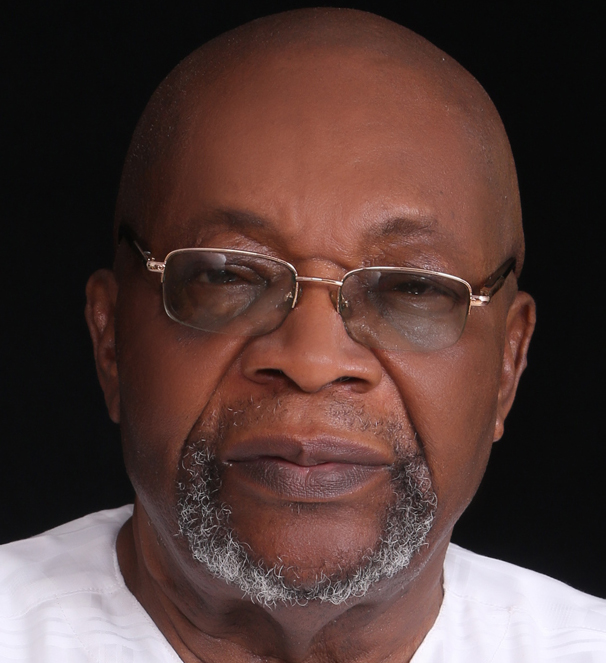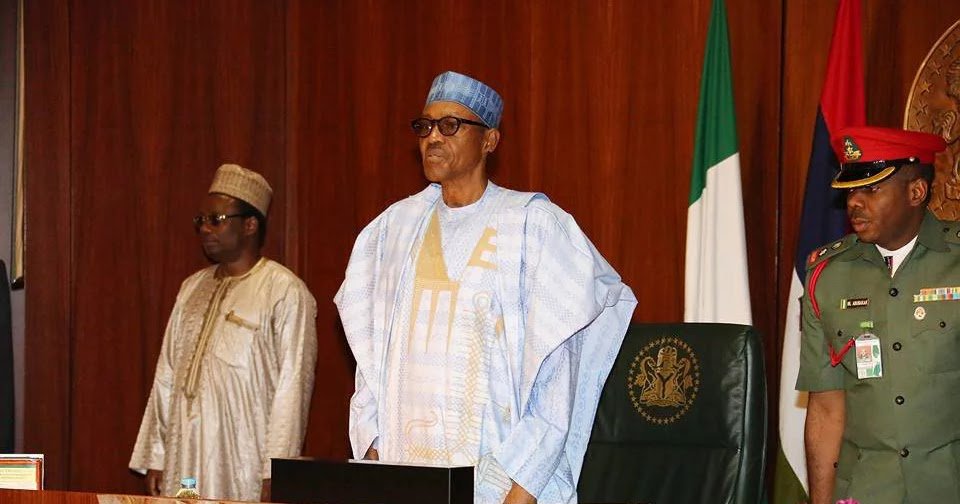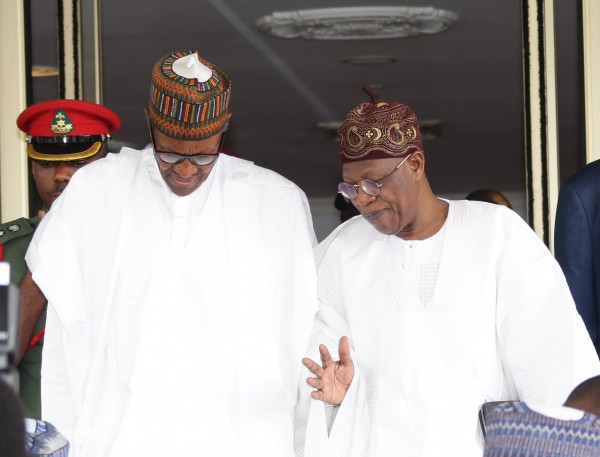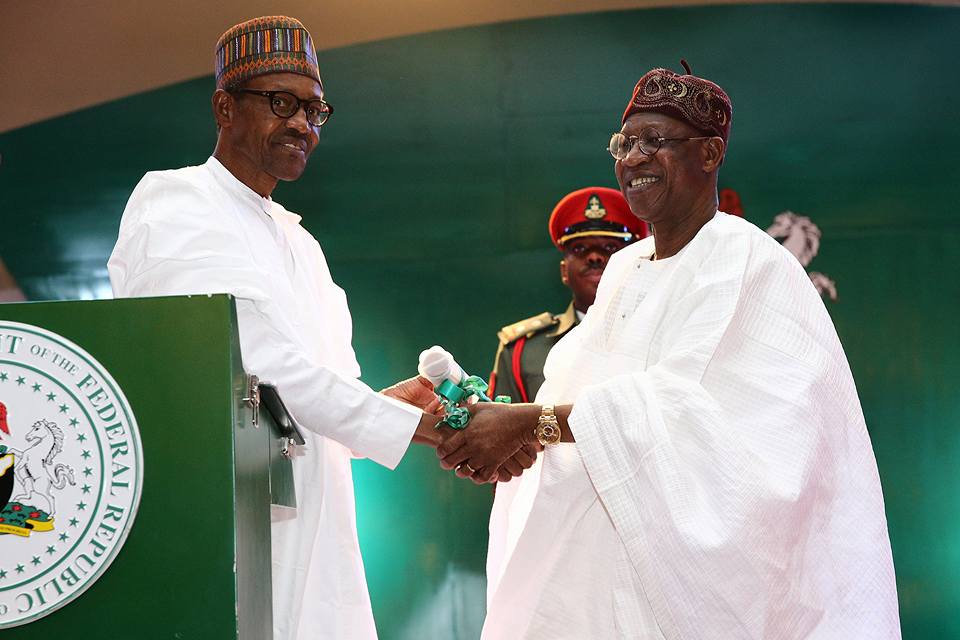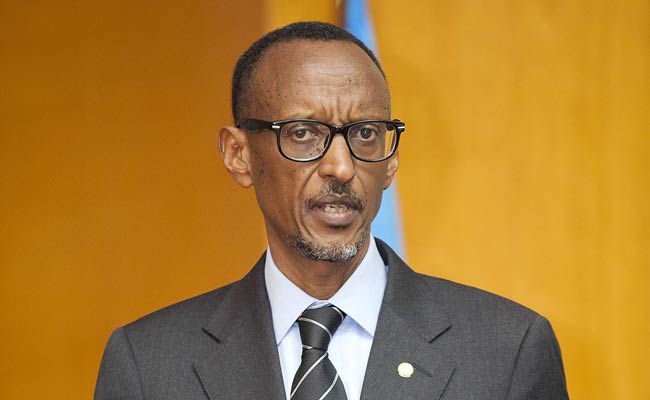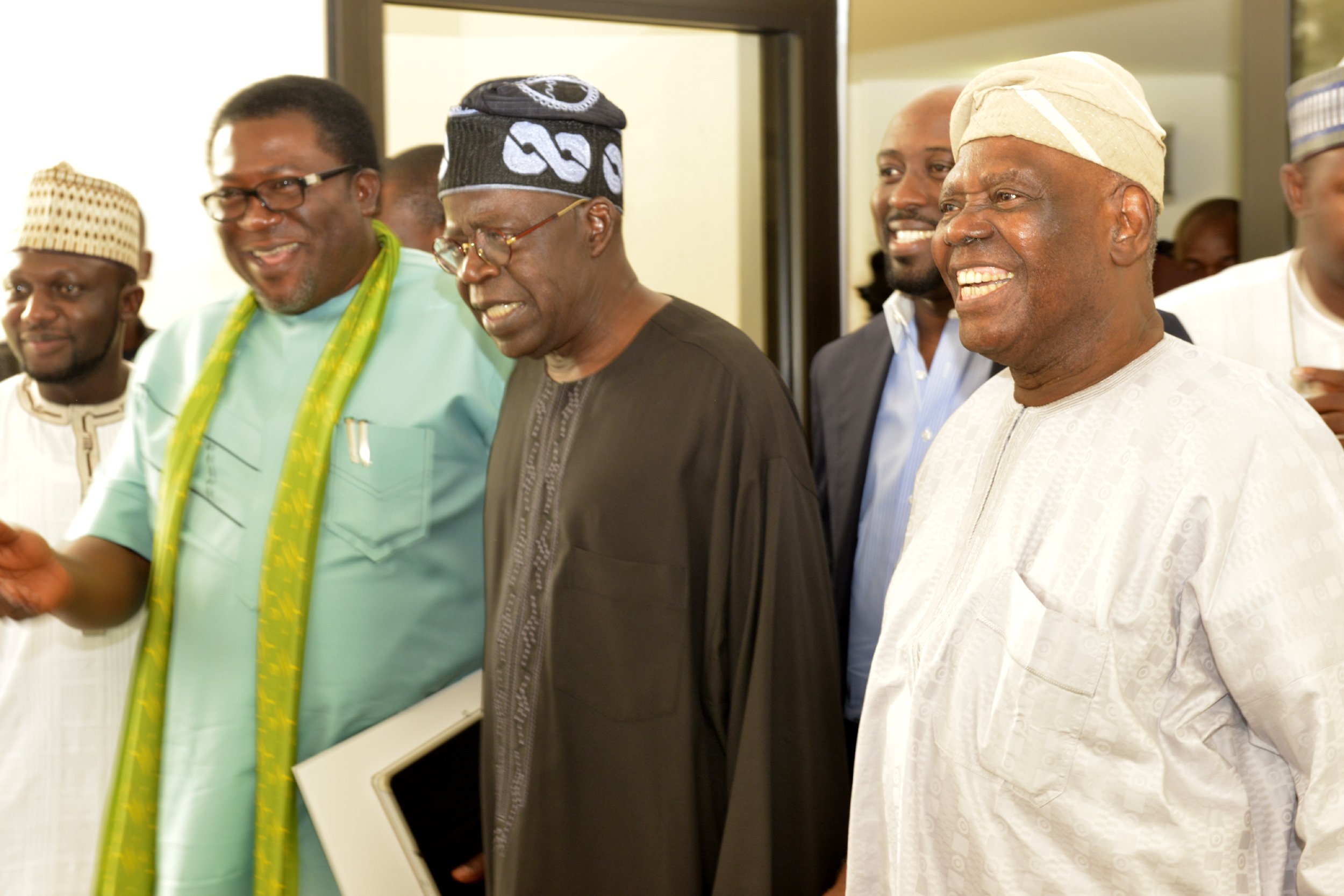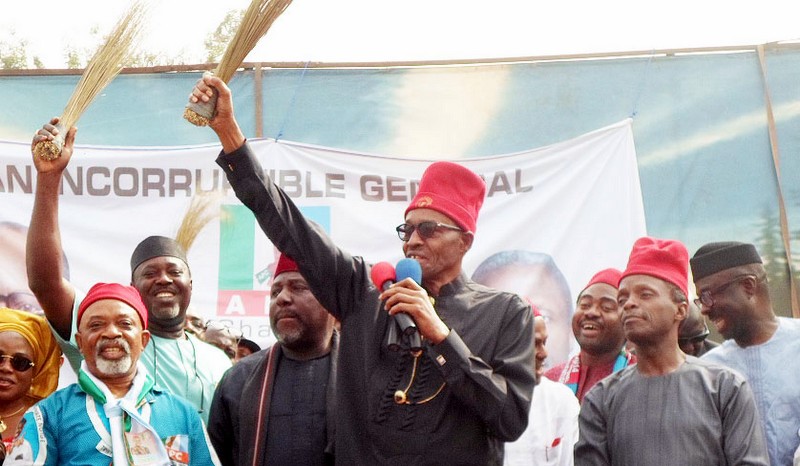There is this anecdote in Igboland about the grasshopper and the bird called “Okpoko”, a mysterious bird reputed for its queer ways. Okpoko is a noisy predatory bird. She rarely catches her preys because her noisy approach always warns her victims in advance and they scamper for safety at her approach. But the grasshopper would not listen and scorned those who warned her. Regaling in her illusion that Okpoko would not come; the grasshopper was caught unawares despite the noisy approach of the Okpoko. In the end the grasshopper’s stubbornness and indisposition to hearken to wise counsel would cost her, her life. So today, one would always hear the Igbo say: “Ukpana Okpoko buuru; nti chiri ya” literally meaning “any grasshopper that falls prey to the Okpoko is irredeemably deaf and stubborn”.
Nigeria is like the stubborn grasshopper. Even with the noisy approach of the Okpoko she does not sense any danger. Her leaders would never listen to informed warnings. I recall that in June this year, I warned that Nigerian’s economy was taking a dangerous turn for the worse. On that occasion, I had alerted Nigerians of the collapsing economy pointing out that sooner than we expected, the economy would go into recession. I recall also that on that occasion, many apologists of this lame-duck Buhari government went to town to label me a prophet of doom; most calling for my head, some even went as far as suggesting that I have misdiagnosed Nigerian’s ailment and therefore offered the wrong therapies.
Interestingly, the Federal Government, after several ostrich evasion in admitting the obvious came out in August to admit that Nigeria’s economy has collapsed. Today the economy is officially in recession. Last Tuesday (August 30th 2016), the Nigerian Bureau of Statistics (NBS) confirmed that the Nigerian economy has gone into recession. According to the NBS, the economy contracted by 2% in the second quarter and unemployment is also on the rise. Many have lost their jobs in the formal sector as firms have cut staff or folded up altogether.
This is no longer news. What is rather worrisome is the lethargy and ineptitude of this government in rising up to the challenge. Embarrassingly, Muhammadu Buhari and his co-travelers have repeatedly tried to justify their lack of vision and mission on the past PDP-led Federal Government. This escapist excuse has never, and will never be acceptable essentially because it is the kind of excuse a lousy and slothful man gives for failing to provide food for his family. The Bible clearly states that a man who cannot provide for his family is worse than an infidel (1 Timothy 5:8). The federal government is the father of all Nigerians. If as the father, it fails to live up to its expectation but take refuge in an attitude of cold complicity and naïve excuses, it is worse than worse can be.
Advertisement
Much as I would not absolve the past government of any wrong doing, it will be preposterous to blame it wholesale for the collapse of the Nigerian economy. The truth is that our economy has always been sick. We never cared and today a minor health disorder that could have been contained and nipped in the bud has been allowed to metastasize into a cancerous terminal illness.
The road to the destruction of the Nigerian economy was constructed at the point we destroyed the regional structure we had at independence. You will recall that each region catered for itself; paid its workforce; built and maintained its institutions and infrastructure; and ensured its own internal security.
The regions never depended on the centre to discharge its responsibilities. The reality of their existence and responsibilities were enough motivations for them to look inwards and leverage on their comparative advantages. There was healthy competitions among the regions; each striving genuinely to out-do the other. Thus in the north one could talk about the groundnut pyramids; the west was famous for its cocoa production; the Midwest for its rubber and timber, the south-east for its coal and palm produce while the south-south was renowned for fishing, agriculture and lumbering. At that time, agriculture constituted Nigeria’s major source of foreign exchange earnings. Even the discovery of oil in commercial quantities in Oloibiri in 1954 did not alter this status-quo.
Advertisement
However, the incursion of the military in 1966 ultimately set the stage for the birth of a unitary system of government in a country where the founding fathers had settled for cooperative federalism. And here I want to make certain clarifications. Some chroniclers of our history have always assumed that General Aguiyi Ironsi’s “Unification Decree 34” was an attempt to introduce unitary rule in Nigeria. This is a lie from the pit of hell, which has for too long been held as sacrosanct.
Ironsi’s decree was purely intended for unification of the military. He never abrogated the regional structure. It was actually after the counter coup by the north in July 1966 that Yakubu Gowon abolished the regional structure, created the 12-state structure in place of the regions and centralized political structured in the country. The confiscation by the military of our commonwealth and the consequent balkanization of the regional structure created an over-bearing central government that assumed so much power and made the states largely dependent on handouts from the government.
You will recall also that prior to the incursion of the military; the south-east has the fastest growing economy in Africa, with the highest per capita income comparable to most developed economies of the world at that time. Igbo enterprise naturally stirred the hatred of the less endowed groups in the country. The Nzeogwu coup of January 15, 1966 would provide the perfect excuse for these mortal Igbo haters to label the coup an Igbo coup.
The outcome of this evil labeling was the implementation, especially in Northern Nigeria, of genocidal pogrom against the Igbo people. The resultant Nigerian Biafra War was seen as the perfect opportunity to destroy the Igbo economy. The destruction of the Igbo economy was a major setback for the Nigerian economy. Irrespective of whatever anyone may say, the calculated decimation of Igbo economy created a gaping hole in Nigerian economy.
Advertisement
The conspiracy by the Nigerian state to implement the dubious indigenization decree immediately after the war was also intended to ensure the effective shutting out of Igbos from the commanding heights of the Nigerian economy. But as I have always said that any attempt to play Things Fall Apart without Okonkwo is a futile attempt. The truth is that any attempt to build up the Nigerian economy, which excludes the Igbos will always end in failure. You can take this to the bank.
The relay-like liquidation of the Nigerian economy by the various military regimes up until 1999 would signal the final descent of the Nigerian economy into doom. In 1999, the PDP inherited an economy that was already gasping for breath and on life support. Apart from the manifest corruption, which has defined leadership in Nigeria and from which the PDP cannot be absolved, we must give credit to the PDP for managing the economy to the point that the APC took over.
So the penchant by the APC to always blame the PDP for its numerous failures is untenable. I find it ridiculous that nobody around Buhari is courageous enough to call him to order. The problem actually is that many Nigerians have a mentality to indulge in the servile flattering, hero-worshiping and fawning of those in positions of leadership. For every person who emerges as Nigeria’s leader, irrespective of the person’s frailties and failings, there is always a ready army of sycophants, praise singers and political wheel-dealers. It is in this context that we can explain the dubious “Two-Million-Man” march of 1998 to “plead” with Abacha to transmute from military to civilian head of state. Today even with Buhari’s many foibles, stumbling and wobbling, we seem to learn nothing from history.
The tragedy of our existence today is that we have, for reasons of political expediency, installed a man who has no track record of managing an economy. And here, I want to submit that Nigeria’s economy is in recession basically because of the type of policies adopted by the Buhari administration. And I want to prophesy again, that if we continue as we are presently going, in the next couple of months, we will go into depression. The signs of depression are becoming more manifest now.
Advertisement
In truth, managing any economy requires visionary leadership. It requires a leader who is intellectually capacious and willing to take responsibility for the outcomes of his policies; a leader who is not vindictive and vengeful; a leader who is passionate; and not one who will declare his preference of “who gets what, when and how” on how people voted for him. We do not have to look far to cite examples of such leaders.
President Franklin D. Roosevelt of the United States of America came to power at a time the American economy was in depression. He had an idea of what to do to reverse the situation. Within the first 100 days of his presidency, he put together and passed through Congress an economic plan under the New Deal that included banking and financial reforms, civil and public work of roads, dams and other projects, and large-scale job and employment schemes.
Advertisement
President Barak Obama inherited an America with serious economic challenges. He came to power at a point the US economy was in a meltdown. His predecessor had gone into several wars costing the government billions of dollars. The industries were collapsing and recession loomed large. Obama did not sit idly by to blame George Bush. He got down to work. He injected stimulus into dying auto-industries, banking sectors, real sectors etc and introduced new economic regime that has come to be known as “Obamanomics”. Obama has been able to rescue the American economy and place it once again on the front seat of global economic giants.
In nearby Ghana, late president John Atta-Mills defeated a sitting president after a tightly fought presidential election. Like President Goodluck Jonathan, Atta-Mills’ predecessor conceded defeated. In his acceptance speech after being sworn-in, John Atta-Mills declared the entire Ghana as his constituency and called on all Ghanaians to join him and his party in building a new Ghana, promising to deal with all Ghanaians on equal measure. He did not dwell on the failure of his predecessor as reasons for non-performance. He initiated practical economic policies, which at his death where inherited by his successor. Today, Ghana’s economy is very vibrant and one of the best in sub-Sahara Africa.
Advertisement
In many ways, the election of Muhammadu Buhari in March 2015 was similar to that of Roosevelt, Obama and Atta-Mills. Agreed, Muhammadu Buhari inherited a stalled economy with oil prices, Nigeria’s major foreign exchange earner, in a free fall. Curiously, since the inauguration of Buhari in May 2015, the economy has taken a further downturn as measures of real GDP growth- unemployment, inflation, exchange rates and the misery index worsened.
What has been the government’s response to this worsening economic recession? Presently, Buhari and his journeymen are preparing an emergency executive bill captioned “Emergency Economic Stabilization Bill 2016”, which would allow the National Assembly grant him emergency powers to rescue Nigeria’s economy from recession. According to reports, the bill if passed, would give the President sweeping powers to set aside some extant laws and use executive orders for an economic recovery package within the next one year.
Advertisement
Among the powers being sought are to: abridge the procurement process to support capital spending on critical sectors of the economy; make orders to favour local contractors and suppliers in contract awards; abridge the process of sale or lease of government assets to generate revenue; and unilaterally allow virement of budgetary allocation to projects. Other provisions seek to amend certain laws, such as the Universal Basic Education Commission (UBEC) Act, that will reduce counterpart funding requirements by states from 50% to 10%. As far as I am concerned, such powers would only serve as openings for corruption on a large scale, resulting in appropriating government assets for private gains by those in the corridors of power. So in truth, such emergency powers would not work.
I have always asked the question: Does Muhammadu Buhari has the capacity to turn around the Nigerian economy? I have my doubts for several reasons. First, Buhari lacks the mental capacity to drive the process of Nigerian’s rebirth. He lacks the focus and intellectual disposition to assume such task. His mindset in assuming power is self-defeatist. He believes that power has been wrestled from an “enemy” and that that enemy must be dealt with and put in his place. For him, we are his enemy and this is an opportunity to teach us a lesson.
This type of mindset is anti-development. During the last global economic meltdown, the USA and other Western governments dug deep into their reserves to inject huge amounts of funds into the economy in what was called “stimulus”. In our present circumstance, the government does not have the financial muscle to inject any stimulus into any sector of the economy.
So what do we do to get out of this miry clay of economic doom? Yes, we may not have the money; but we sure do have alternatives. These alternatives require courage and huge political will. The first point is that we must go back to the basics, back to our traditional values and back to the structures adopted at independence by our founding fathers.
We need to constituionalize the existing six geo-political zones as the federating units and catalyze them to go back to their first love; to their traditional economic strengths. The regions or zones must be made to look inwards to exploit their relative advantages. Considerable powers must devolve to the zones to own and exploit resources within their areas. Every part of this country has significant amount of resources that can sustain it. We are not looking inwards. Our hope is built on nothing less than the oil in the Niger-Delta.
We cannot continue like this. The government must muster enough political will to tinker with the constitution in order to give the regions or zones the latitude to go back to 1963 arrangement and restrict the federal government to its traditional areas of influence. This is fundamentally the rudiments of restructuring. In real terms, this is the most available “stimulus” that can be injected into Nigeria now; basically because no foreign government or institution will inject money into our economy. There can be no alternative to this type of stimulus. Perhaps, through, we will teach the world a new strategy in statecraft.
Views expressed by contributors are strictly personal and not of TheCable.
